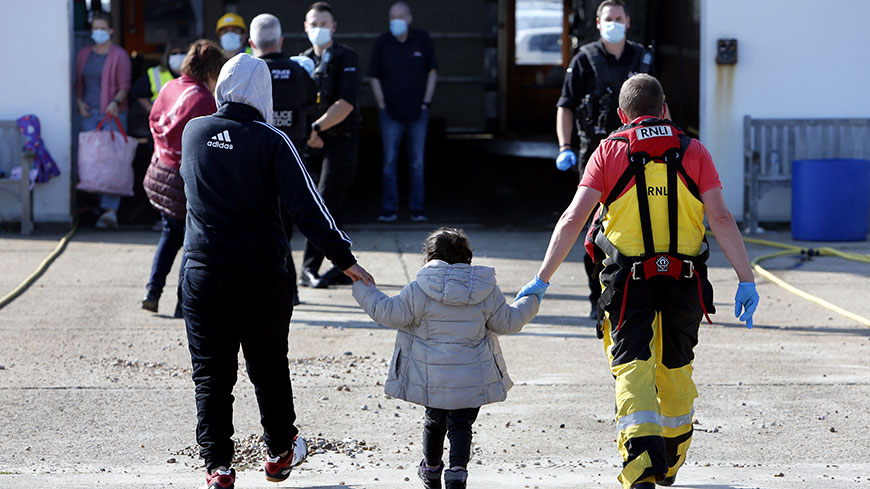Meeting in Strasbourg this week, the Council of Europe's Group of Experts on Action against Trafficking in Human Beings (GRETA) expressed deep concern over the United Kingdom’s Illegal Migration Bill and its lack of compliance with core elements of the Council of Europe Convention on Action against Trafficking in Human Beings.
GRETA stressed that the new legislation would constitute a significant step backwards in the fight against human trafficking and modern slavery in the United Kingdom, and risk undoing many of the country’s significant achievements in this area, by making it harder to identify victims, prosecute traffickers and combat human trafficking.
Under the Bill, nearly all people who arrive in the United Kingdom in breach of immigration control – and who do not come directly from a country where their life and liberty are threatened by reason of race, religion, nationality, membership of a particular social group or political opinion – would be detained and removed from the United Kingdom. This includes victims of human trafficking and modern slavery, who would be deemed to be a threat to public order because they have arrived in breach of immigration control, and denied access to the protections they are legally entitled to.
GRETA stressed that, if adopted, the Bill would run contrary to the United Kingdom’s obligations under the Anti-trafficking Convention, to prevent human trafficking, and to identify and protect victims of trafficking, without discrimination.
GRETA recalled that Article 10 of the Convention places an obligation on states to identify victims of human trafficking, and not to remove them until the identification process has conclusively established whether or not they are victims of trafficking. This obligation applies regardless of the manner in which a person has arrived in the country. Indeed, traffickers often take away victims’ travel and identity documents, as a way of exerting pressure, or give them false documents. The Bill, if adopted, would deny the possibility for people who arrived without valid entry clearance to be identified as victims of trafficking.
Furthermore, Article 13 of the Convention provides for a recovery and reflection period of at least 30 days during which presumed victims of human trafficking are not to be removed from the country’s territory. During this period, they are entitled to assistance and protection, pursuant to Article 12, paragraphs 1 and 2 of the Convention, such as appropriate and secure accommodation, emergency medical treatment and legal counselling. Under the Bill, the recovery and reflection period would likewise be denied to victims of trafficking.
GRETA is also concerned that the Bill is being examined under the urgent procedure, which will not allow for proper consultations with the opposition, stakeholders, experts or civil society.
Echoing the concerns raised by the UNHCR and the Council of Europe Commissioner for Human Rights, GRETA therefore urges the United Kingdom to uphold its international obligations in combating human trafficking by reconsidering the relevant provisions of the Bill.
GRETA is an independent multidisciplinary group mandated to monitor the implementation of the Council of Europe Convention on Action against Trafficking in Human Beings. The Convention currently has 48 parties. It entered into force for the United Kingdom on 1 April 2008. There have so far been three evaluations of the UK by GRETA, the report on the last evaluation having been published on 20 October 2021.




